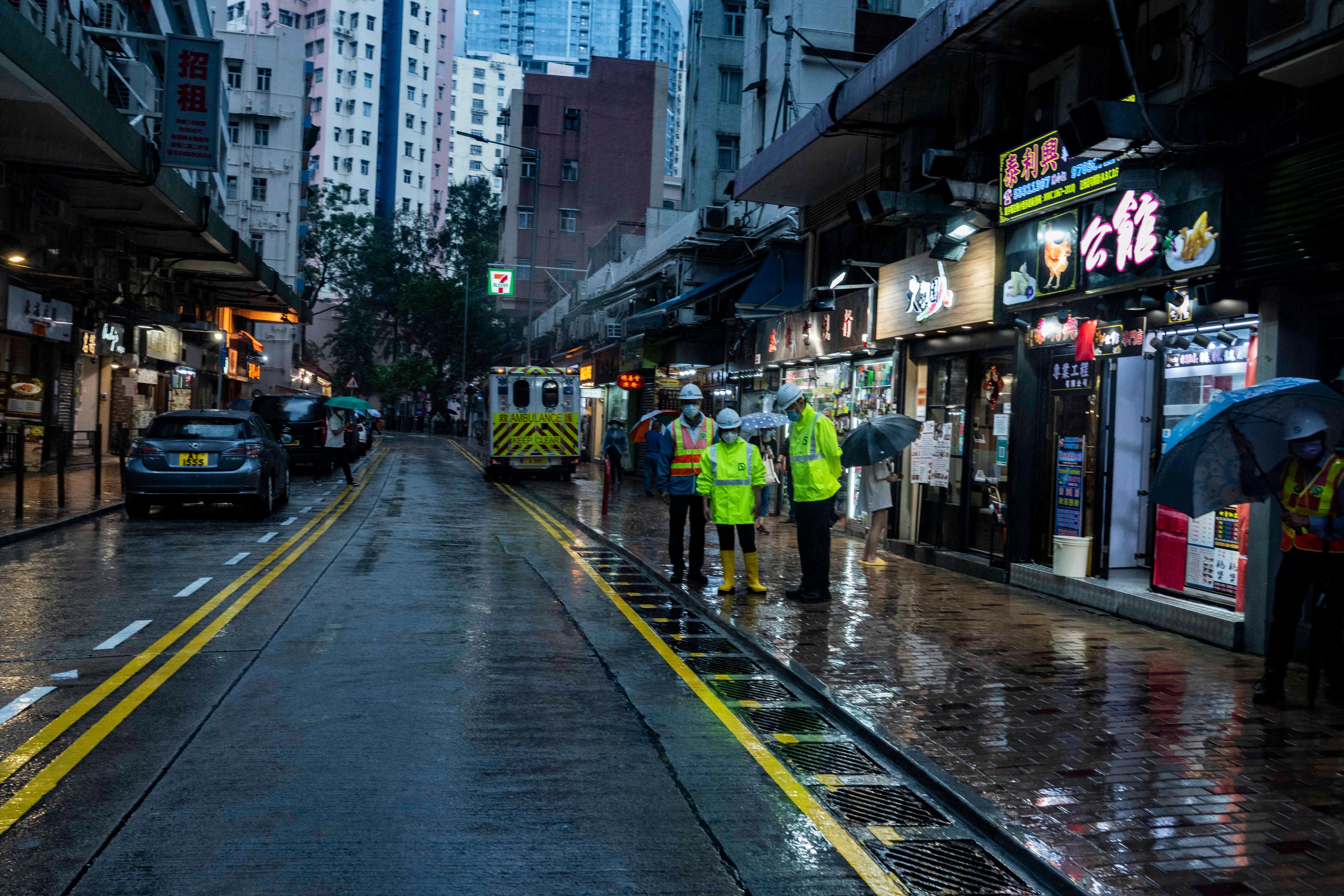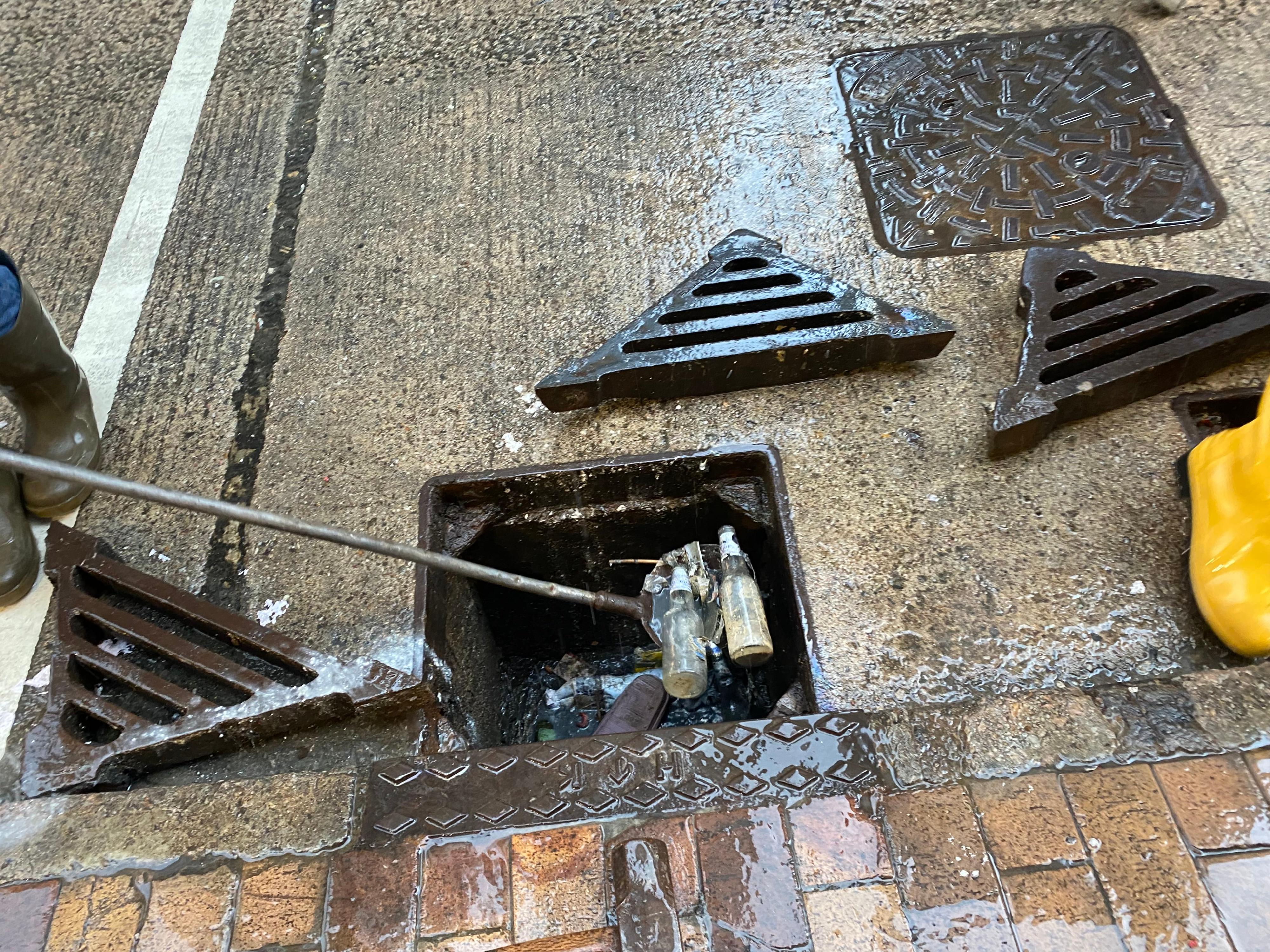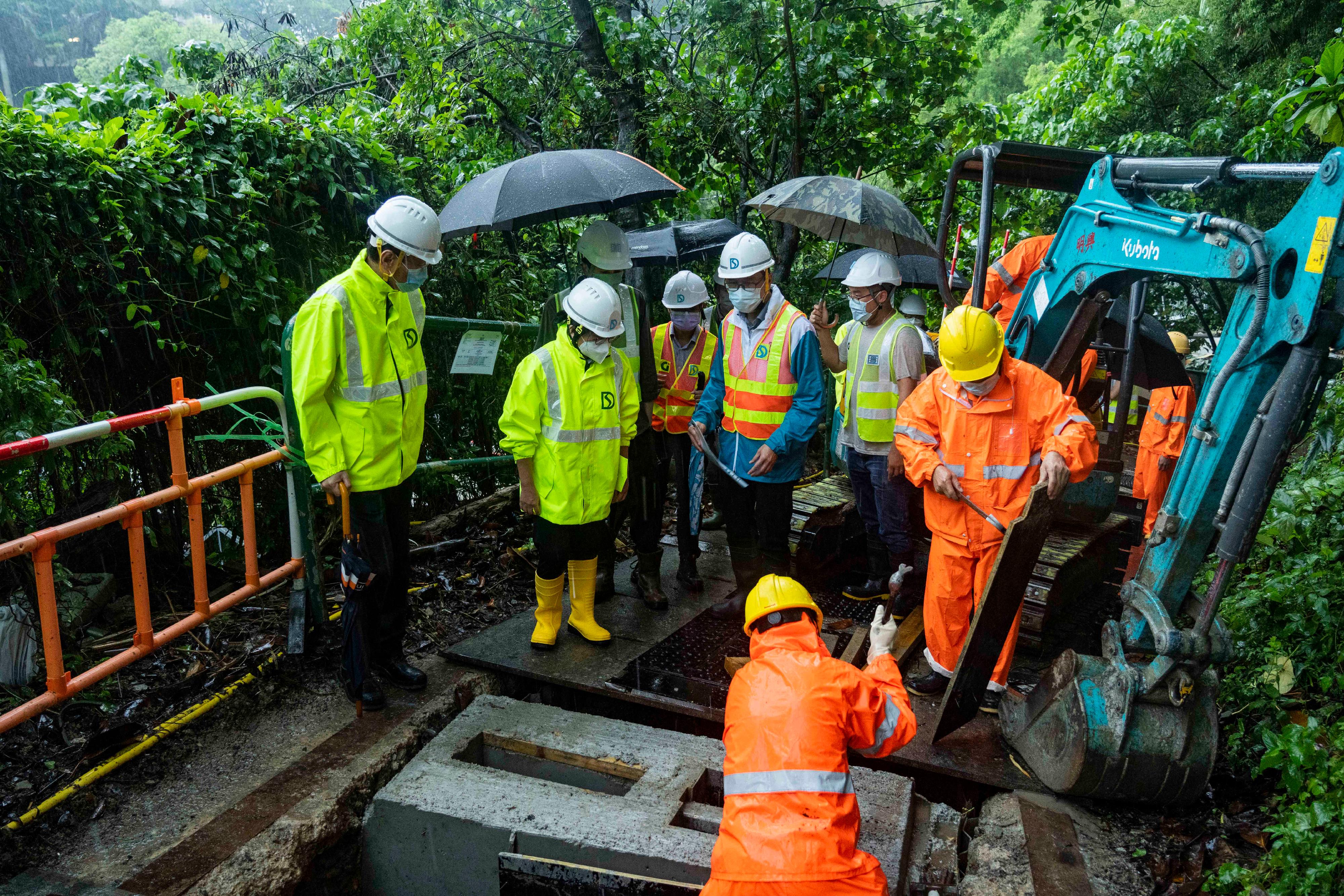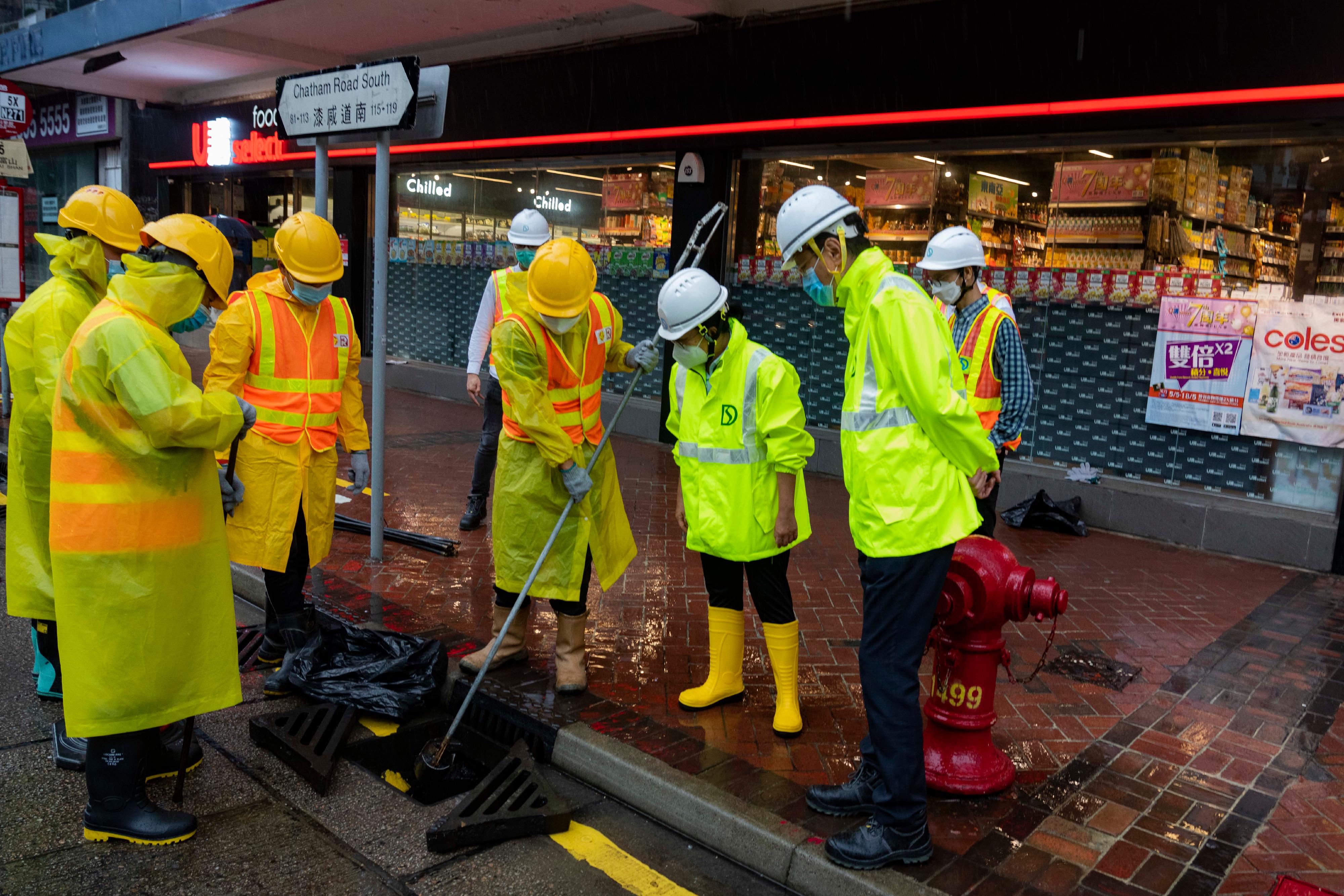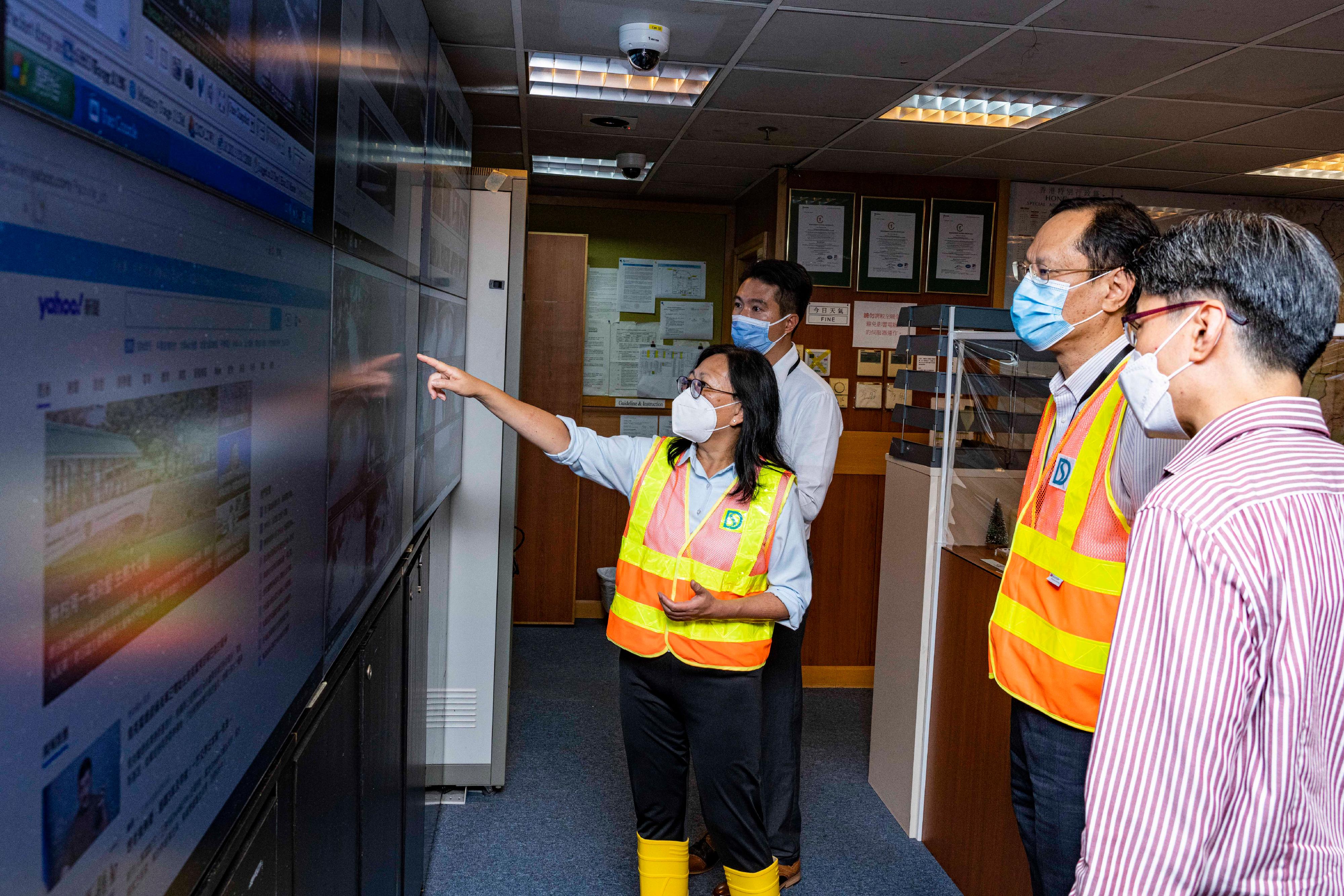The Director of the Drainage Services, Ms Alice Pang, today (May 12) inspected several flood prevention facilities to understand the department's work in coping with the rainy season and recent unstable weather.
Ms Pang and the Deputy Director of Drainage Services, Mr Peter Chui Si-kay, first visited the drainage facilities at Shau Kei Wan Main Street East to understand the drainage condition in the vicinity. Shau Kei Wan Main Street East is located in the low-lying area of the district. During heavy rain in the past, the drains were blocked by litters, fallen leaves or other washouts carried down by surface runoff and resulted in flooding. The Drainage Services Department (DSD) had laid new drains nearby earlier to accelerate the dissipation of stormwater to relieve flood risks.
Ms Pang then visited several locations to inspect the drainage system clearance work of flooding blackspots and the drainage performance of the newly constructed drainage facilities to ensure the flood prevention measures are functioning well.
The DSD is now carrying out the Stage 2 drainage improvement works in Pok Fu Lam Village to intercept and divert upstream stormwater to the existing drainage system. The DSD had also completed a number of minor drainage improvement works in the vicinity of Chatham Road South to increase the capacity of the drainage system. To further lower the flood risks in Tsim Sha Tsui district, the DSD is now implementing the Drainage Improvement Works in Tsim Sha Tsui, which includes the construction of an underground storage tank beneath the Urban Council Centenary Garden and addition of drains at nearby streets.
Ms Pang also visited the DSD's Emergency Control Centre (ECC). When a Red or Black Rainstorm Warning signal is hoisted, a special announcement on Flooding in the northern New Territories is issued, or the Tropical Cyclone Warning Signal No. 8 or higher is in force, the ECC will be activated immediately to ensure flood prevention facilities are working well by monitoring the condition of the major channels, intakes, drainage tunnels and underground stormwater storage tanks via the real-time surveillance system. Additional staff and resources will also be deployed to cope with flooding cases.
Before rainy season, the DSD will inspect the drainage facilities and carry out desilting work. Ms Pang had inspected the flood prevention facilities, including the drainage tunnels and rivers before this rainy season, to understand the pre-rainy season preparatory work. During rainy season, in addition to regular inspection and clearance of drains, the DSD also implements the "just-in-time clearance" measure and deploys staff before the onset of rainstorm to inspect about 200 locations which are susceptible to blockage by litter, fallen leaves or the like, and will immediately arrange for clearance works if necessary to guarantee the drainage system is in good condition.
To further enhance Hong Kong's flood prevention standard, the DSD continues to adopt new technologies including the use of a river desilting robot and a remotely operated pipeline inspection robot, as well as the installation of CCTV at the major intakes of drainage tunnels to improve the efficiency and safety of the maintenance work of the drainage system.
The DSD urged the public to keep drains clear at all times and prevent the blocking of drainage intakes. The public should immediately call the 24-hour Drainage Hotline at 2300 1110 if abnormalities with public drainage facilities are found.
Follow this news feed: East Asia






